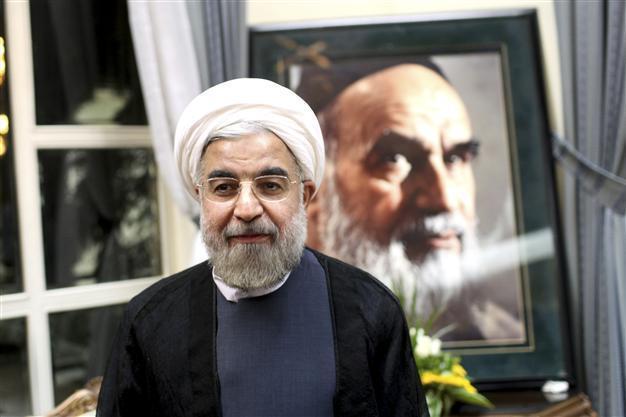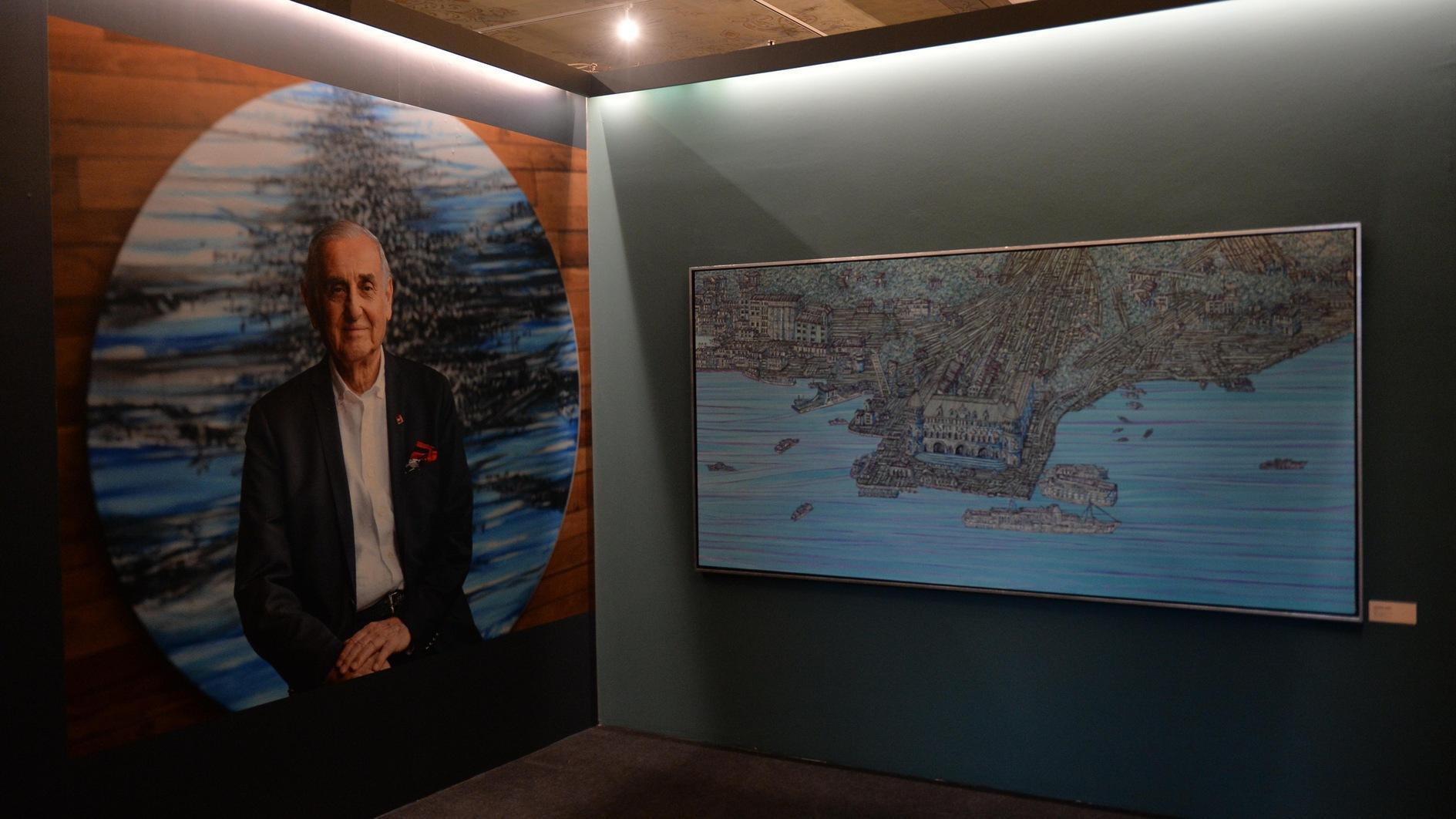Iran's president-elect Rowhani warns against foreign intervention in Syria
TEHRAN - Agence France-Presse

Iranian President elect Hasan Rowhani, stands in front of a portrait of the late revolutionary founder Ayatollah Khomeini, during visit of his shrine, just outside Tehran, Iran, Sunday, June 16, 2013. AP Photo/Ebrahim Noroozi
Hassan Rowhani Monday warned against foreign intervention in Syria, insisting that the strife-torn country's crisis should be resolved by its own people, in his first press conference since being elected Iran's new president. "The Syrian crisis must be resolved by the people of Syria. We are against terrorism, civil war, and foreign intervention. Hopefully, with the help of all countries of the region and the world, peace and calm will return to Syria," the cleric said."The Syrian crisis must be resolved by a vote by Syrians. We are concerned by the civil war and foreign interference. The government (of President Bashar al-Assad) must be respected by other countries until the next (2014 presidential) elections and then it is up to the people to decide." Rowhani was on Saturday declared winner of Iran's presidential election, ending an eight year conservative grip on the Islamic republic's adminstration under Mahmoud Ahmadinejad.
Hopeful for agreement with world powers over nuclear issue
Rowhani expressed hope Monday that Iran can reach a new agreement with major powers over its disputed nuclear programme, saying a deal should be reached through more transparency and mutual trust.
Rowhani, a moderate-conservative cleric who was declared winner of Iran's presidential election on Saturday, also described as unfair and unjustified sanctions imposed against the Islamic republic over the nuclear issue.
"The idea is to engage in more active negotiations with the 5+1, as the nuclear issue cannot be resolved without negotiations," Rowhani said, referring to the UN Security Council's five permanent members plus Germany.
The 64-year-old's victory raised hopes of an easing of strained ties with Western nations, but he used his first news conference on Monday to rule out a halt to his country's controversial enrichment of uranium.
"This period is over," Rowhani said, referring to international demands for an end to the enrichment.
There were "many ways to build trust" with the West, he added, as Iran would be "more transparent to show that its activities fall within the framework of international rules." Rowhani has previously vowed to restore diplomatic ties with the United States, which cut relations in the aftermath of the 1979 seizure of the US embassy by Islamist students.
He was helped to victory in Friday's election with the backing of reformists, with thousands of people taking to the streets to celebrate and world powers expressing cautious optimism.
Tehran has been engaged since 2006 with the P5+1 -- Britain, China, France, Russia and the United States, plus Germany -- over its nuclear work.
Failure to reach an agreement in the negotiations has seen the Islamic republic repeatedly slapped with international sanctions that have hit its economy hard.
"Threats and sanctions are not effective" Rowhani told reporters on Monday.
"The sanctions are unfair, the Iranian people are suffering, and our (nuclear) activities are legal. These sanctions are illegal and only benefit Israel," said Rowhani, who is due to replace President Mahmoud Ahmadinejad in early August.
Western powers and Israel believe the programme is being used to develop an atomic bomb, but Tehran has always insisted it is for purely peaceful purposes.
















